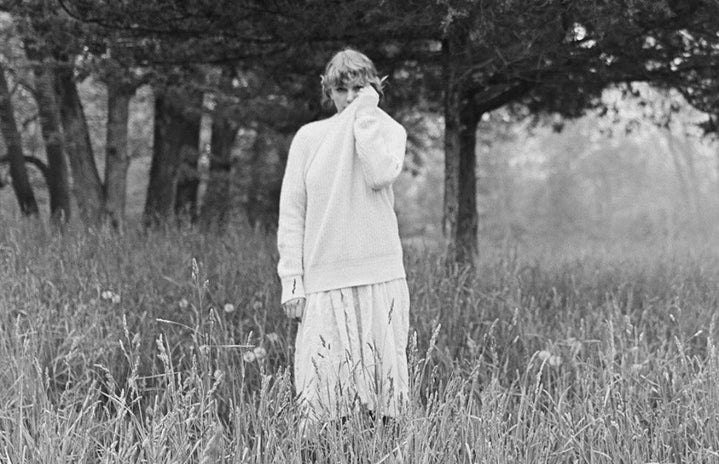To be completely honest, Taylor Swift’s music – along with working out, constantly Facetiming friends, and my dog – is what has gotten me through the last ten months working remotely from my childhood home. During the pandemic, Taylor Swift has given us two new studio albums: Folklore and Evermore. These albums are unlike anything Ms. Swift has released before because they are not about her own life but rather a slew of stories connected in a world she calls the “folklorian woods.” These albums have been both surprising and beautiful, as well as narratively unlike anything she has done before. However, the real shocker came with the surprise release of the re-recording of 2008’s “ Love Story” and the anticipated release of the re-recorded version of “Fearless.” This will include six new songs that almost made it onto the original record, “from the vault.”
If you have not been following up with the Taylor Swift re-recording drama, here is a quick summary. Taylor signed to Big Machine Records at the age of sixteen, where she agreed to a contract that (like most recording label contracts) gave Big Machine control of her masters or the recordings of her songs. Out of her nine studio albums, six of those were made at Big Machine, from 2006’s Taylor Swift to 2016’s reputation. The president of that label and the owner of her masters was Scott Borchetta. Once her contract with the label ended in 2018, she decided to leave Big Machine and signed to Republic Records. She did this with the knowledge she would not own her masters. However, in 2019, Borchetta sold her masters to Justin Bieber’s manager Scooter Braun. Swift has a troubled past with Braun due to his involvement in the infamous 2016 Kanye West/Kim Kardashian scandal. In a Tumblr post discussing the selling of her masters, Taylor said that she had received incessant bullying from Braun for years. Including, in reference to the aforementioned scandal, “when Scooter got his two clients together to bully me online about it,”
Fast forward to 2020, her masters were sold to a private company, Shamrock, by Braun for 300 million dollars without her knowledge. Swift reached out to them to attempt to repurchase her masters but found out that regardless if she bought them back or not, Braun would still be making money off of her. She said that she could not buy them back in good conscience knowing that he would still be profiting off of her. She announced in 2020 that she has decided to re-record her first six studio albums. The first of these re-recordings came out on February 11, 2021, and is the re-recorded version of “Love Story” now called “Love Story (Taylor’s Version)”. On the same night, it was announced the rest of the re-recorded 2008 “Fearless”, now called “Fearless (Taylor’s Version)” would be released on April 9th.
So far the new version of “Love Story” has outdone the original, showing that Taylor Swift’s fans are loyal and excited to hear how her voice has evolved. However, what this also means is that a new generation will be hearing Taylor’s music for the first time. They will be fully immersed in what it was like to grow up with her – something many of us have done. I first heard Taylor Swift’s “Teardrops on My Guitar” at six years old when I saw the music video on MTV and was instantly enamored by the singer. But the first of her songs I fell in love with was “Love Story.” I probably watched the music video fifty times and would sing it through the aisle of every major store. Taylor is twelve years older than me, therefore with the release of each new album comes experiences I cannot relate to. I have grown up with her music, but not alongside it. Songs I used to sing at eight years old, ones Taylor wrote at 18 or 20, at the time were not pertinent in my life but as I have grown up I have started to relate to her discography more and more. For example, I listened to the 2010 song “Never Grow Up” about Taylor looking back on her childhood and living alone for the first time one too many times before I moved away to college.
I am most excited to hear the full version of Fearless and Speak Now with a newfound perspective, now being at the same age she was when she wrote both of these albums. I cannot wait to see little girls everywhere and even those my age discover Taylor Swift’s music. For them to fully understand how relatable and unique her songwriting abilities – in a way that no matter your life experiences you can always relate to at least a handful of her songs. Taylor Swift’s re-recording of her music is brave in that it shows a businesswoman who has evolved from the sixteen-year-old who did not know how much artistic control she was signing away. Her masters are her life work: a kaleidoscope of her memories. She is setting an example for young women everywhere to take control of their narrative. Not only is she being a trailblazer, but she is allowing us to re-fall in love with her music.



